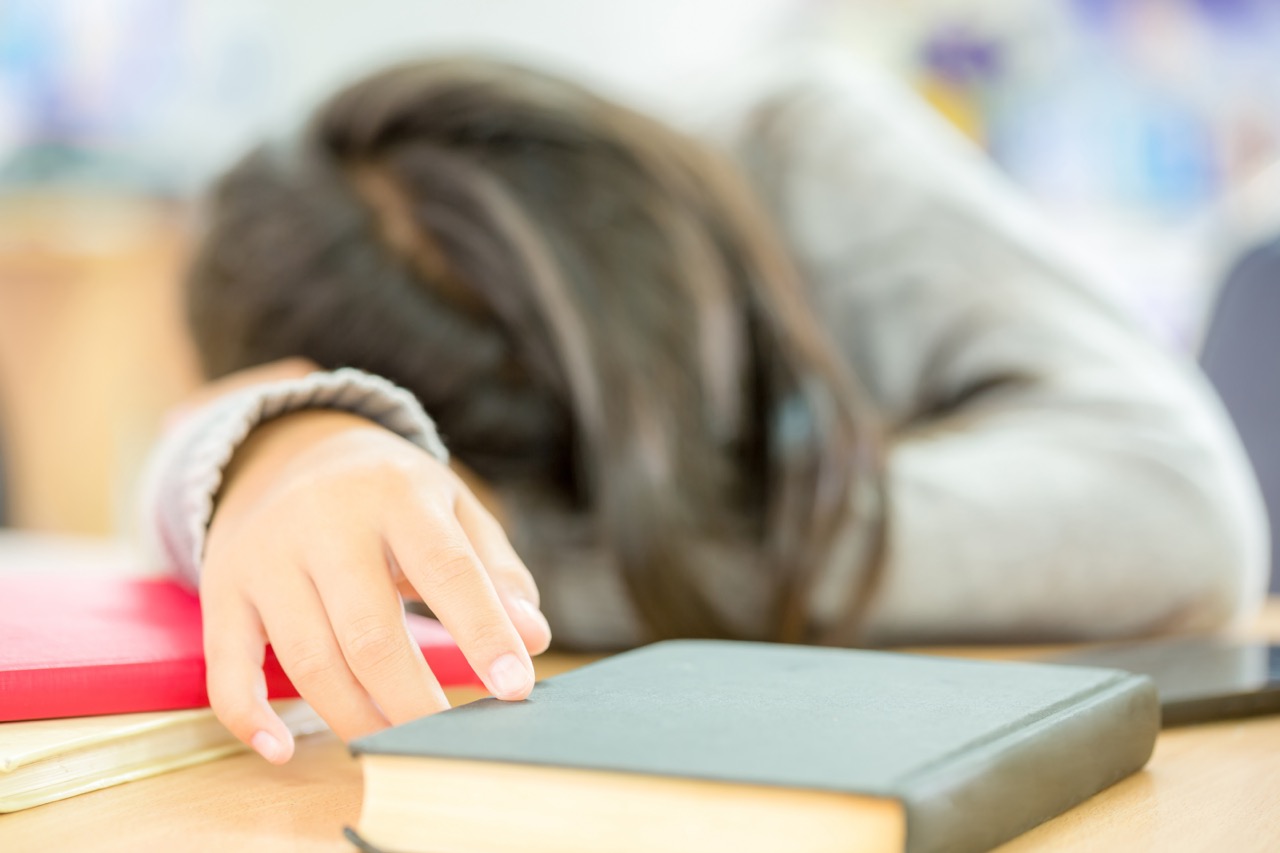As academic pressure continues to mount, many high school students are showing signs of health decline. Faced with intense coursework, the stress of advancing in their studies cannot be underestimated. According to a recent survey, more than half of high school students report feeling frequently stressed, affecting their mental and physical health. In this context, students often experience the following health issues:
- Sleep Disorders: Prolonged late-night studying and excessive workload lead to insufficient sleep, affecting learning efficiency and overall health.
- Emotional Issues: Excessive stress can trigger anxiety and depression, impacting students' mental health.
- Physical Discomfort: Long periods of sitting and lack of exercise can cause back pain, vision problems, and other physical issues.

According to a recent survey, more than half of high school students report feeling frequently stressed, affecting their mental and physical health. (Photo / from freepik)
Psychologist's Recommendations: Effective Ways to Relax
In response to these issues, psychologists recommend that students learn proper stress relief and relaxation methods. Here are some key suggestions:
- Avoid Digital Devices: Although convenient, prolonged use of computers, smartphones, and tablets can cause fatigue. Psychologists suggest setting fixed break times daily, away from digital devices, to allow the eyes and brain to rest.
- Regular Exercise: Exercise is an excellent way to relieve stress. Activities such as running, swimming, or yoga are recommended at least three times a week for 30 minutes each session. This not only enhances physical fitness but also effectively alleviates stress.
- Deep Breathing and Meditation: Deep breathing and meditation are quick methods to relax. Spend 10 minutes daily closing your eyes and practicing deep breathing or simple meditation to reduce anxiety and stress.
- Cultivate Hobbies: Besides studying, cultivating hobbies like drawing, music, or reading can help shift focus and relax the mind and body.
- Maintain a Regular Sleep Schedule: Good sleep habits are crucial for mental and physical health. Try to maintain a consistent sleep schedule and ensure sufficient sleep every night.

In addition to students' efforts, parental support and companionship are also essential in the academic journey. (Photo / from freepik)
Parental Support and Companionship
In addition to students' efforts, parental support and companionship are vital. Parents should pay close attention to their children's mental health, communicate effectively, and promptly address any stress-related issues. Providing a harmonious and supportive family environment helps children feel loved and understood, aiding them in better coping with academic pressure.







